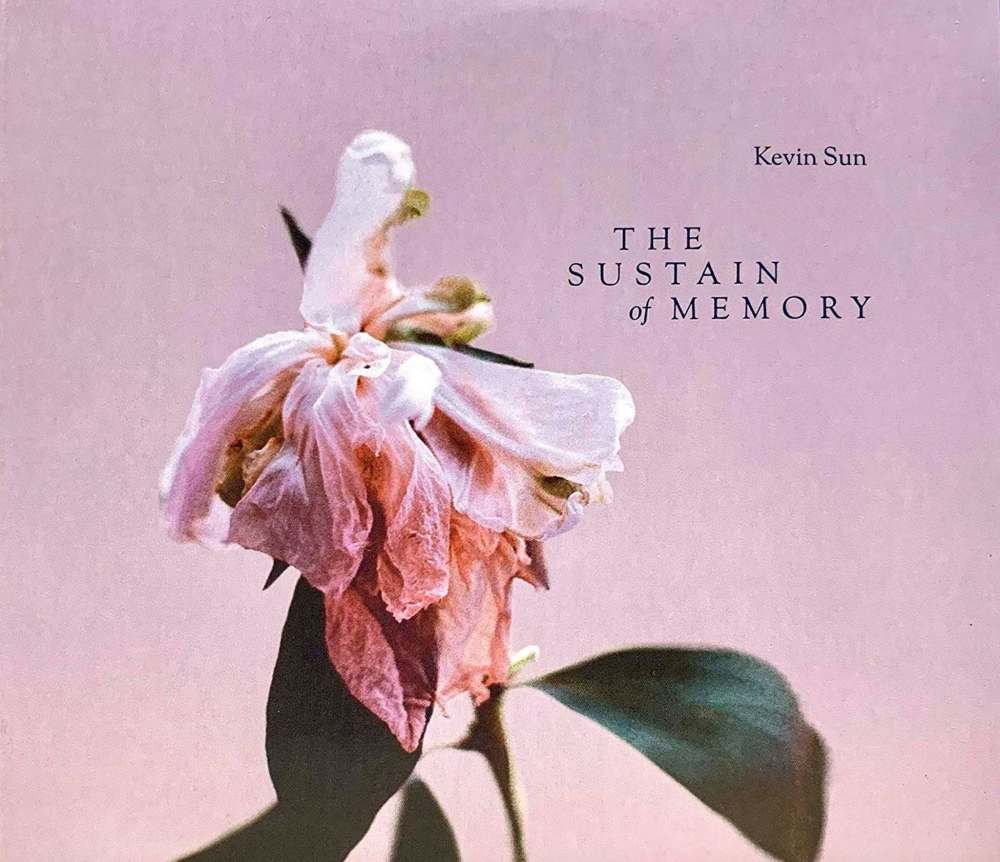New music
Reviews of this week's CD releases
Advertisement
Read this article for free:
or
Already have an account? Log in here »
To continue reading, please subscribe:
Monthly Digital Subscription
$19 $0 for the first 4 weeks*
- Enjoy unlimited reading on winnipegfreepress.com
- Read the E-Edition, our digital replica newspaper
- Access News Break, our award-winning app
- Play interactive puzzles
*No charge for four weeks then billed as $19 plus GST every four weeks. Offer only available to new and qualified returning subscribers. Cancel any time.
Read unlimited articles for free today:
or
Already have an account? Log in here »
Hey there, time traveller!
This article was published 12/02/2020 (1786 days ago), so information in it may no longer be current.
ROOTS / COUNTRY
William Prince
Reliever (Six Shooter/Glassnote)
This isn’t a review as much as it is an affirmation that the emergence of William Prince as a star has been the best Manitoba music story of the past four years.

His evocative, country-tinged folk songs and his arresting baritone voice have won him a Juno Award, landed him a deal with prestigious boutique label Glassnote Records and created a buzz that grows with every passing day.
Most importantly, Prince’s sincere, soul-baring lyrics have earned him the sort of devoted following that will keep him working for decades — especially if he continues to make records as good as Reliever.
Consisting of 11 songs that clock in at just over 43 minutes, Prince’s second album both builds on and picks up from where its predecessor, Earthly Days, left off.
Working on the principle of “if it ain’t broke,” Prince has once again hooked up with the Nashville-Winnipeg production duo of Dave Cobb and Scott Nolan, who give the singer-songwriter and his ace band of locals plenty of room to breathe, while also creating a rich, folk-based, roots-tinged tapestry that accentuates and deepens the effect of his heart-rending tales.
Across these 11 tunes, Prince takes personal sketches of humility and longing and transforms them into a whole that resounds with redemption and love and hope. Let him be your reliever.
★★★★ out of five
STREAM THESE: Wasted; That’s All I’ll Ever Become; The Gun
— John Kendle
ROOTS / COUNTRY
Sweet Lizzy Project
Technicolor (Mono Mundo/Thirty Tigers Records)
Sometimes a band’s path to success happens in a circuitous fashion. After filming an episode of the PBS program Havana Time Machine, the quintet known as Sweet Lizzy Project hit the radar of Mavericks frontman Raul Malo, who is the child of Cuban immigrants to the U.S.
With Malo’s help, the band moved to Nashville to create created this superb 10-tracker.
SLP’s sound doesn’t neatly fall into any particular musical category; the music they create doesn’t necessarily tag them as Hispanic. The combo instead works its magic via a psychedelic sound that warms the centre of your body with its sensual heat and robust purpose.
The centre of attention is singer Lisset Diaz, and it’s her fabulous pipes that drive these songs directly to their colourful edges. There are many comparisons that can be made, but suffice to say that even when Diaz sounds as if she is channelling Alanis Morissette, it is a very good thing. Her control and range are expansive and on tracks like the twanging Turn Up the Radio and the full-flowing What Was Happening To Me, she dives voice-first into all she does.
By holding notes, adding pitched vibrato and even some low growls, she sounds confident and assured. It doesn’t hurt that the band members surrounding her are as skilled at what they do as she is. Guitarist and band leader Miguel Comas peels off the kind of sustained solos that would make David Gilmour proud on the album’s opening stunner Technicolor, and even gets a new wave, Blondie-esque riff down perfectly on the jet-propelled rocker Ain’t Nobody To Call.
Malo himself joins in the fun on the evocative duet The Flower’s in the Seed, while the two Spanish-language tracks (Tu Libertad, Vuelta Atrás) fit absolutely seamlessly alongside their English-language counterparts.
★★★★
STREAM THESE: Turn Up the Radio; Technicolor
— Jeff Monk
JAZZ
Kevin Sun
The Sustain of Memory (Endectomorph Music)
This is an ambitious double album by a musician who is creating serious buzz in the jazz community. Kevin Sun plays tenor sax and clarinet, but it is as much the compositional depth of his music as his acknowledged musicianship that has built the buzz.
This two-CD release has shifting personnel between trio and quartet as it moves through three suites, one of which takes up the entire second disc. The Middle of Tensions and Circle, Line make up the first disc, with The Rigors of Love the second. Each suite has numerous parts that segue into the next with ease.
While clearly avant-garde jazz, there is a wonderful sense of melody and flow of ideas. There is nothing jarringly harsh in the dissonance. Dana Saul’s piano is delicate, quite restrained and beautiful throughout — especially in The Middle of Tensions: IV — as the instruments slide and move around each other so the written and improvised sections become indiscernible.
Circle, Line has shorter pieces and is more spirited than the other two suites. Sun plays clarinet exclusively on The Rigors of Love, which has three much longer sections. It is generally more reflective in mood, with the clarinet offering a different overall sound, along with the trumpet of Adam O’Farrill.
This release could almost be a new step in the musical and compositional development of contemporary jazz — or of music generally, for that matter. Whether or not you appreciate this style of music, remember the name Kevin Sun. You will hear it again.
★★★★1/2
STREAM THESE: The Middle of Tensions: IV; Circle, Line: III; The Rigors of Love: II
— Keith Black
CLASSICAL
Adam Laloum
Schubert: 894 & 958 Piano Sonatas (Harmonia Mundi)
French pianist Adam Laloum marks his debut on the Harmonia Mundi label with a pair of Franz Schubert works written two years apart: the Austrian composer’s much-loved Sonata No. 18 in G Major, D. 894, a.k.a. “the Fantasie,” and Sonata in C minor, D.958, the latter the first of a trilogy composed on the brink of his premature death at age 31 in November 1828.
Laloum, who first rose to international prominence after garnering top prize at the Clara Haskil Competition in 2009, is also known for his prior recordings of Brahms, Schubert and Schumann. As one might expect, the pianist displays a natural affinity for Schubert’s intimate music, with his interpretations of both featured works more at home during one of the era’s popular salon “Schubertiades,” than onstage in a cavernous concert hall.
He brings his sensitive artistry to the first offering in G major, giving lyrical voice to each of its four movements, including opening Molto moderato e cantabile, while the following Andante is rendered with poetic eloquence. The contrasting Menuetto displays greater rhythmic vitality, with the finale Allegretto clearing away the darker storm clouds of the preceding movement created from its shift to a (mostly) minor tonality.
The Sonata in C minor — with its markedly greater emotional contrasts evoking the passion of Beethoven’s late sonatas — showcases the pianist’s dramatic sensibility, including punched-out accents during the two outer Allegro movements. The finale in particular demonstrates Laloum’s technical prowess, including rock-steady left-hand triplets. A decidedly calmer Adagio features his luminous tone and sensitive voicing, also heard during the Menuetto, with the latter, replete with pregnant pauses, still unfolding gracefully despite the looming realities of a heartbreaking death.
★★★★
STREAM THIS: Sonata in C minor, D.958, Adagio
— Holly Harris






